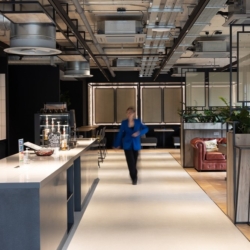December 7, 2023
Curtail zero hour contracts and give workers guaranteed work hours, say researchers
 An evidence review led by the University of Warwick has concluded that the increase of zero hours contracts over the last 20 years has created significant risk for workers. They found that unreliable work can result in a sudden loss of hours and earnings, and an inability to access legal advice for unfair or potentially unlawful employment practices. Along with colleagues from the ReWAGE expert advisory group, academics at the Institute of Employment Research at the University of Warwick examined the legal and workplace practices associated with zero hour contracts, along with data covering flexibility, pay insecurity, workers ability to assert their rights and workers health and wellbeing. More →
An evidence review led by the University of Warwick has concluded that the increase of zero hours contracts over the last 20 years has created significant risk for workers. They found that unreliable work can result in a sudden loss of hours and earnings, and an inability to access legal advice for unfair or potentially unlawful employment practices. Along with colleagues from the ReWAGE expert advisory group, academics at the Institute of Employment Research at the University of Warwick examined the legal and workplace practices associated with zero hour contracts, along with data covering flexibility, pay insecurity, workers ability to assert their rights and workers health and wellbeing. More →



































December 8, 2023
Ten years of Insight and a few things I think I know (one of our most read pieces this year)
by Mark Eltringham • Comment, Flexible working, Technology, Workplace, Workplace design